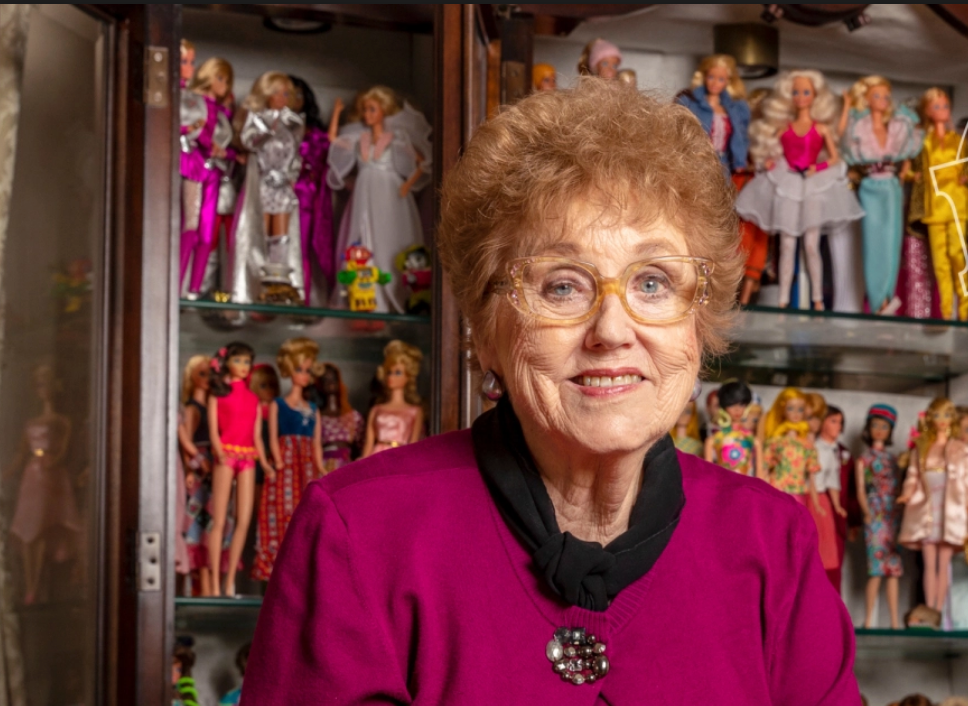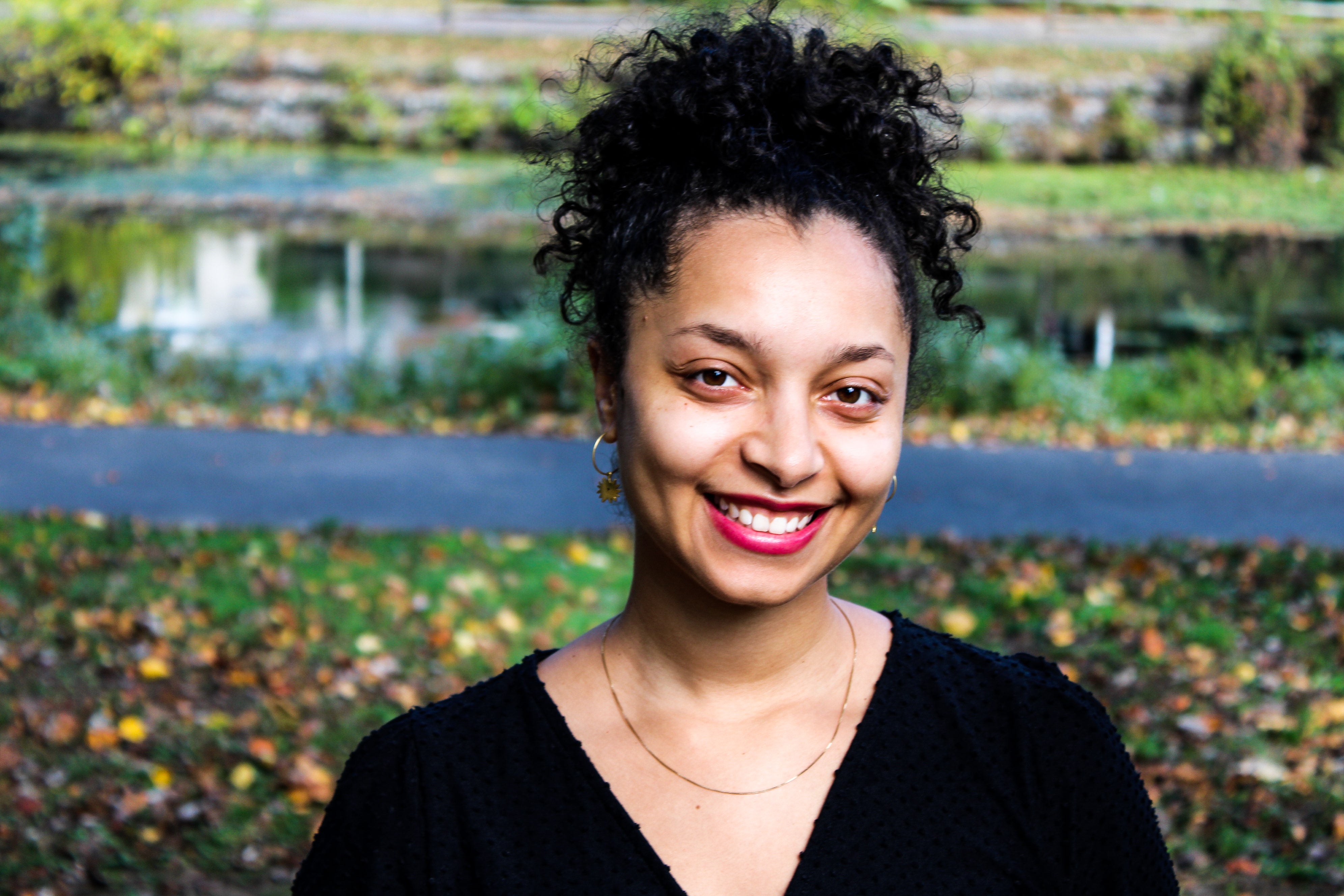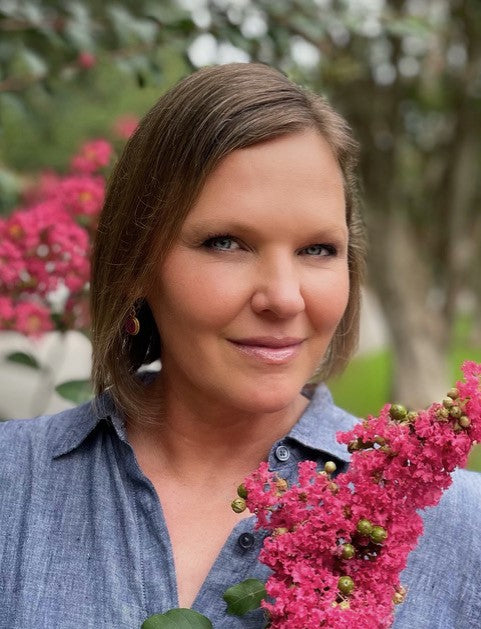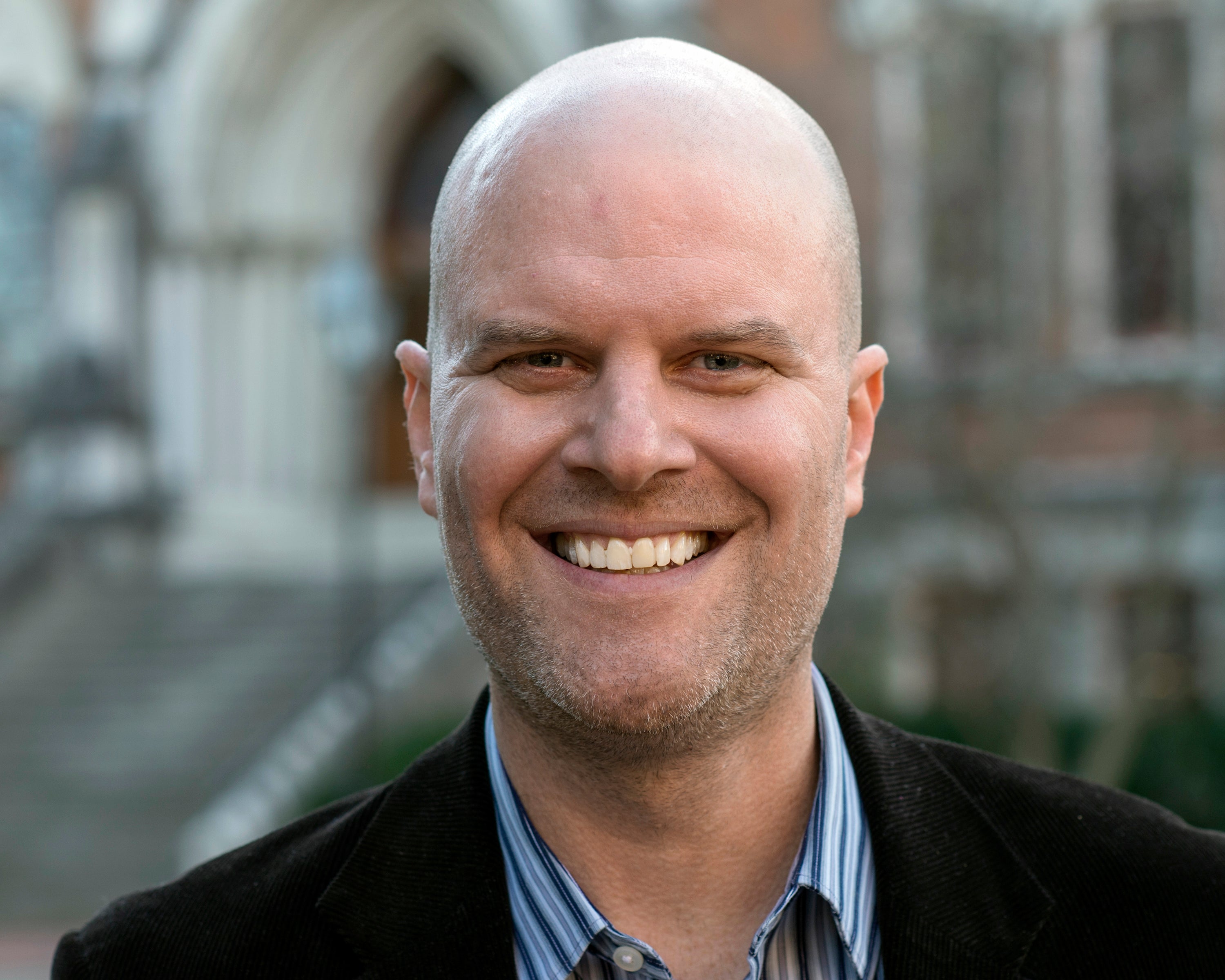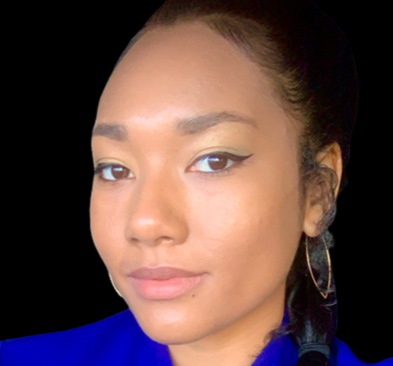Photo from matermea.com
Author: Denene Millner
Author Bio:
"New York Times best-selling author Denene Millner is a highly respected and sought after award-winning journalist whose captivating books, columns and essays have secured her foothold in the entertainment, parenting, book publishing, and social media industries.
The veteran author has written and collaborated on 27 critically acclaimed and bestselling books. She also has been a frequent contributing entertainment, parenting and relationships writer for some of the nation’s most well-read and respected magazines, penning high-profile cover stories on everyone from hit filmmaker Tyler Perry and Scandal’s Kerry Washington to superstar George Clooney and The Walking Dead’s Lauren Cohan, for Essence, Women’s Health, Ebony and other top publications" (Source: Amazon.com).
1. What inspired you to write a children's book about Church on Sunday opposed to a young adult book on Church/How has your faith in your own writing skills improved over the years?
Oh goodness, it was in the pews of St. John’s Baptist Church in Copiague, New York, where I learned how to be. I was a member there until I went away to college, but the moments I remember most occurred when I was little—a kid being filled with the love of my family and the church community that was also my family.
And so I wanted to honor that specific moment in time that shaped me, and I thought the best way to do that would be in a picture book instead of a novel. “Early Sunday Morning” was actually written back in about 2003, when my own daughters were young and I was struggling to find a place for them that mirrored my experience growing up in the church.
I wanted them to feel that connection—to really understand what it means to stand up in front of a crowd and recite a Bible verse or sing a song, and trust that the congregation loved you enough to encourage you to do your best, but also support you no matter how hard it was the task at hand.
When I wrote the original story back in 2003, the story was much more simplistic, but with age and more writing experience under my belt, I was able to add a layer of sophistication and storytelling to the piece that I wouldn’t have necessarily had a decade and a half ago.
2. What do you hope people get from your book, "Early Sunday Morning"?
The point of the Denene Millner Books line in general and “Early Sunday Morning” in particular, is to highlight stories that speak directly to the humanity of Black children and families. I want children to be able to read stories about themselves—their everyday experience, beyond the typical Black children’s book, which tends to lean on stories about the Civil Rights Movement or slavery or some Black icon we’ve read about a million times.
I submit that our community is full of beautiful stories yet to be told, and “Early Sunday Morning” is one of those stories that provides a mirror for children who have this kind of familial love and the community surrounding them and a window for others who don’t necessarily know this to be fact.
3. Is the book based on your own personal story or did you just model it after people you know that have sang in the church choir?
It’s definitely my own personal story of singing my first church solo. But the beauty of it is that my story is universal: Black families are familiar with the ritual of getting ready for church and how that process starts on the Saturday before service, when girls are getting their hair done, boys are getting haircuts, your mother is laying out your church clothes and getting your offering together for your little purse, and you’re practicing your bible verses or your songs at choir practice.
It is a universal story for us, but steeped in some deeply personal memories of my own—like my interaction with my mom, who always encouraged me, or Mr. Harvey, who really existed and was one of my favorite deacons, or my father, who, to this day, remains my best friend.
4. We loved that you used such a common experience that relates to many people, especially those raised in Black churches, how has being raised in a Black church molded your faith, perspective etc.?
Being raised in a Black church taught me about the strength of our community—how we hold each other down in good times and bad, always with this deep faith that God’s got our backs and will see us through. Being a part of the St. John’s Baptist Church community taught me that there is something out there bigger than me, and that is my responsibility to nurture it—to carry that in my heart at all times.
I do not go to church now that I’m grown for reasons too varied to mention here. But I am a spiritual person and every day I worship in ways that stretch far outside the bounds of sitting in a church on Sunday morning for a couple of hours and then forgetting about it until the next week.
5. Being a person that has reached tremendous success in writing, how important has it been for you to stay humble and faithful to your craft?
Being a writer is such a profession of solitude. I am often in my house, on my computer, with no one around, lost in my thoughts, staring at the screen and creating things simply from my imagination. The words come when they feel like it. But I have to submit to them, first.
There is no room for ego because coaxing those words onto the page is hard work. Humbling work. Particularly if an editor or follower reads it and doesn’t think its as good as you thought it was. That’s a humbling experience, let me tell you!
I stay faithful to my craft because I know I’m pretty good at it; it’s sustained me for 30 years, and, God willing, it will for another 30.
6. Which of your books was the most challenging for you to write/Which one was the easiest to write/Which one did you have the most fun writing?
The most challenging book I wrote was “Stand Up Straight and Sing,” a memoir with Jessye Norman, the opera singer. I knew nothing of opera when she hired me to write her autobiography and so I had to teach myself about a genre of music that is a challenge to access.
That involved a lot of reading, a lot of performance watching, a lot of text. But we made it work because I knew her: A Black woman, raised in the segregated south, who won despite the odds.
The book that was the easiest to write was probably Taraji P. Henson’s “Around the Way Girl,” simply because she made it easy; there was no question she refused to ask, she had a GREAT memory and she didn’t try to hide from her experience.
When a co-author is that raw and honest and willing to share, it makes my job immensely easy; I can focus on crafting the story instead of tricks for filling in the blanks that the artist can’t color in herself. She made it easy for me.
7. How did you get linked up to write books with celebrity authors such as Steve Harvey and Taraji P. Henson and what were those writing processes like?
My background is as a journalist; I worked first as a political reporter and then later as an entertainment writer and editor. So I was already floating in that world with a few books under my belt when editors started approaching me about celebrity memoir writing.
Ironically, it was my work as a ghostwriter and co-author on a few children’s books and adult novels that opened the door for me to be able to write Steve Harvey’s book—his editor had worked with me on several projects. The success of “Act Like a Lady, Think Like a Man,” led to a lot more work for me from publishing houses who wanted me to recreate that magic.
As for the writing process, it’s pretty simple: I work with the client to outline the story they want to tell, then I conduct interviews about the subjects they want to broach and then I go off into my own world and write until my computer smokes! LOL!
8. Do celebrity book projects have stricter deadlines or do they still give you the opportunity to be very creative with your time?
Oh goodness, no. Those deadlines are no joke. I’ve written books in a matter of weeks so that they could crash them into the publishing cycle and get them into bookstores timed to specific events. For instance, I wrote Nene Leakes’ memoir in 28 days—including interviews, writing, and editing—because the publisher wanted the book to drop at the beginning of the debut of the second season of the show.
“Act Like a Lady” was knocked out in six weeks. I wrote the novelizations of “Sparkle” and “Dreamgirls” in two weeks each. The longest I ever had to write a book was nine months—and that was for both Charlie Wilson’s “I Am Charlie Wilson” and Jessye Norman’s “Stand Up Straight and Sing.” I wrote Taraji’s book at the same time as Cookie Johnson’s book (“Believing in Magic”)—over the course of four months, including interviewing, writing and editing. It’s not a game.
9. What is the best advice you have received on happiness?
That happiness is an inside job. I thought that was all at once simple but profound. I am responsible for my own happiness; I can’t wait for anyone to bring that to me, I can’t go buy it from anyone. I have to decide what will make me happy, which isn’t an easy thing to do, right? Because it’s ever-changing.
And then go out and make it happen for myself. The moment I embraced that concept is the moment I got really happy. I know how to please me.
10. What is the best book you have read in 2018, thus far?
“When They Call You a Terrorist,” by Patrisse Cullors and written by asha bandele. First of all, asha is a beast with words. But Patrisse’s story is compelling, heart-wrenching and profound.
I’m looking forward to starting Tayari Jones’ “An American Marriage,” which I hear is quite a book. Last year, my favorites were “Brown Girl Dreaming,” by Jaqueline Woodson and Samantha Irby’s “We’re Never Meeting in Real Life.”
11. What is the best advice you have for getting through writer's block?
Step away from the computer, turn off the devices and do what fulfills you creatively. For me, that’s heading to the museum to see art, which I love, or hanging with friends, whom I love and make me laugh and feel full, or just staring at the sunset or a body of water and understanding that the universe is grand and beautiful and so much bigger than us and just perfection amongst the imperfect. Each of these things gives me the energy to try the words again. That and baths with smell goods and great music.
12. In total, how many books have you written and do you plan on writing more books in the future?
I have written 27 books so far, with six of them being New York Times bestsellers. I have a 28th on the way; I think it’ll hit stores in January 2019. I am also in the middle of writing proposals for two of my own books—books that I’ve had in my head for quite some time but never had the chance to get out because I’ve been busy writing everyone else’s books.
13. Who has been a great mentor to you in life and what have they taught you about leadership?
My greatest mentor is my daddy, James Millner, who has told me from the moment that I could understand the words coming out of his mouth that I can do ANYTHING I set my mind to. He also taught me how to be kind to others, to always be gracious, because nothing is owed to us, and to hustle because nothing is promised to us. He is each of these things. I only hope that I can measure up to half the human he is.
Places To Find More From This Author:
Twitter: @mybrownbaby
Instagram: @mybrownbaby
Facebook: Denene Millner
Website: www.mybrownbaby.com
Early Sunday Morning (Denene Millner Books)

Shop With Us...




